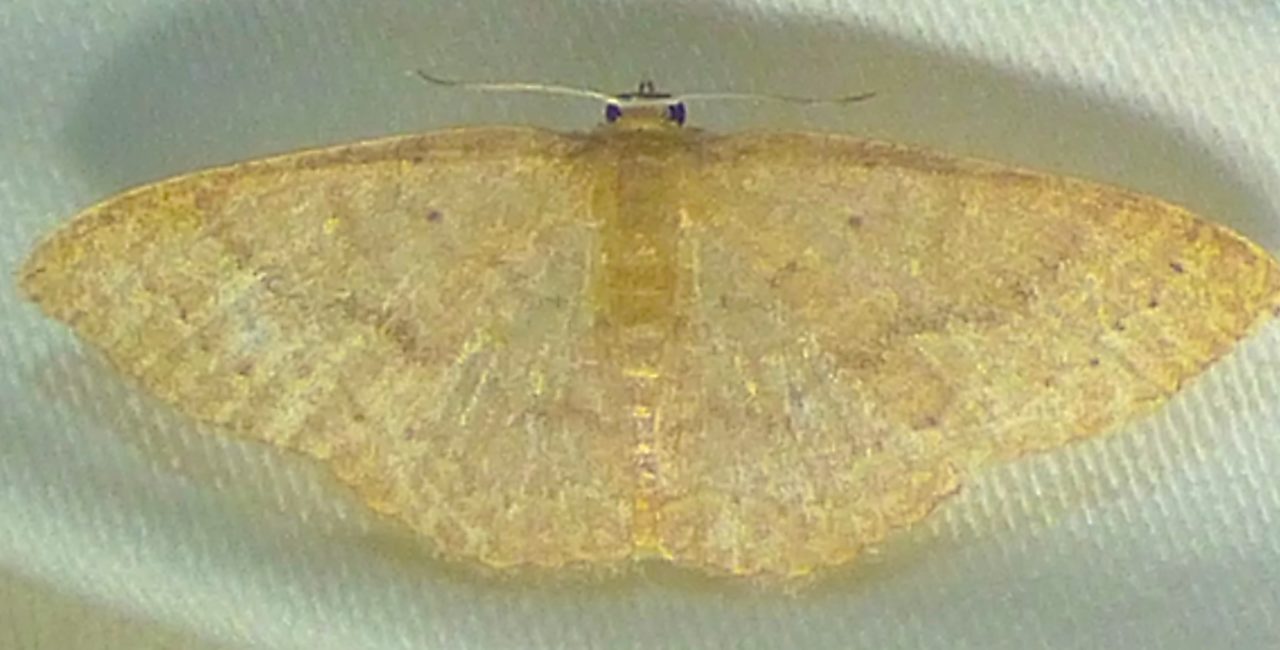
Creatures were stirring: biology majors learn about the “Moths of South Carolina” project
Fall semester classes at Erskine College began Wednesday, August 19, but a few junior and senior biology majors celebrated “the night before classes” August 18 in the Pressly Family Heritage Garden with Ken Carman, who is conducting the “Moths of South Carolina” project.
Associate Professor of Biology Dr. Matthew Campbell invited members of his upper-level Ecology course to come to the Pressly Garden that evening to welcome Carman back to Erskine and to observe his work. The researcher had been here on July 15, and at that time had set up lights and a large sheet designed to attract and view moths.
“Ken Carman explained to the class his project to document moths for the SC State Moth Database,” Campbell says. “He spoke about using moth species diversity to indicate the health of the environment, and about his techniques to attract and photograph moths.”
Carman employed the same set-up of sheet and lights he had used in July. Campbell and his students were joined in the garden by Professor Emerita of Biology Dr. Janice Haldeman, who was also in attendance when Carman visited the campus in July.
Haldeman oversees the Pressly Family Heritage Garden on campus and is glad that Carman made a return visit to Erskine. “I’m just so appreciative that our campus—Pressly Garden—is part of Ken’s moth sampling project for Abbeville County. We need this monitoring of nature and its creatures,” she says. “It gives us an opportunity to contribute to this important aspect of environmental biology.”
Campbell recalls that in July, Carman identified about 80 species of moths in the Pressly Garden. “For the night of August 18, he had about 65 species of moths, 28 of them species that also had been found in July, and 37 that had not been found in July.”
Featured image courtesy of Ken Carman. See more photos here.
